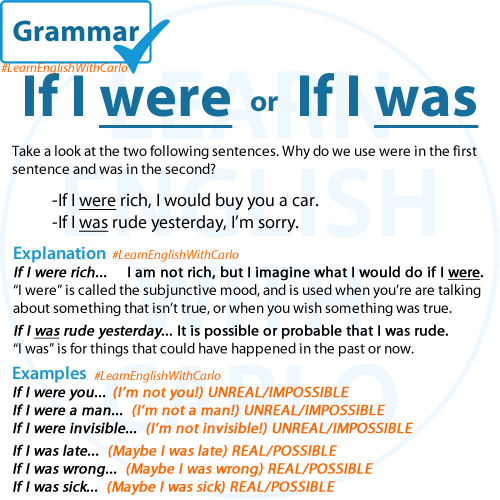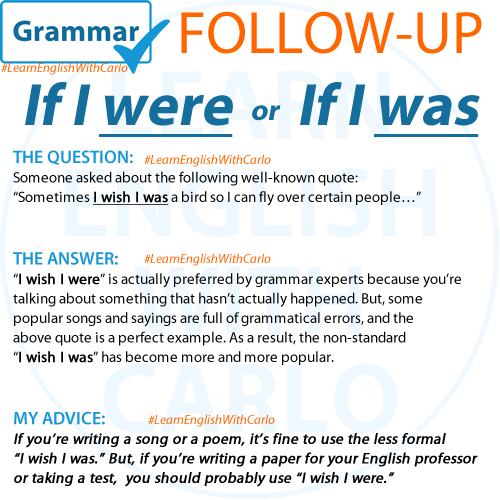
Take a look at the two following sentences. Why do we
use were in the first sentence and was in the second?
- If I were rich, I would buy you a car.
- If she was feeling sick, it’s good that she went home.
In the first sentence, “If I were rich”, “were” is used because it’s a hypothetical or unreal condition, which requires the subjunctive mood (used for unreal or imagined situations).
In the second sentence, “If she was feeling sick”, “was” is used because it’s a statement about a real past possibility or condition. The speaker is talking about something that might have actually happened in the past, so the indicative mood is used instead of the subjunctive.
Here are a few more examples to highlight the contrast between the subjunctive (unreal or hypothetical) and indicative (real past) moods:
- Subjunctive (hypothetical):
- If I were the president, I would lower taxes.
(Unreal situation; I’m not the president)
- If I were the president, I would lower taxes.
- Indicative (real past):
- If she was late yesterday, she might have missed the meeting.
(Talking about a real possibility in the past)
- If she was late yesterday, she might have missed the meeting.
- Subjunctive:
- If he were here, he would help us.
(Hypothetical; he’s not here)
- If he were here, he would help us.
- Indicative:
- If he was here earlier, we must have missed him.
(A real possibility in the past)
- If he was here earlier, we must have missed him.
These examples show how “were” is used in unreal conditions, while “was” is for real past situations.

SEE ALSO: The Subjunctive Mood.
